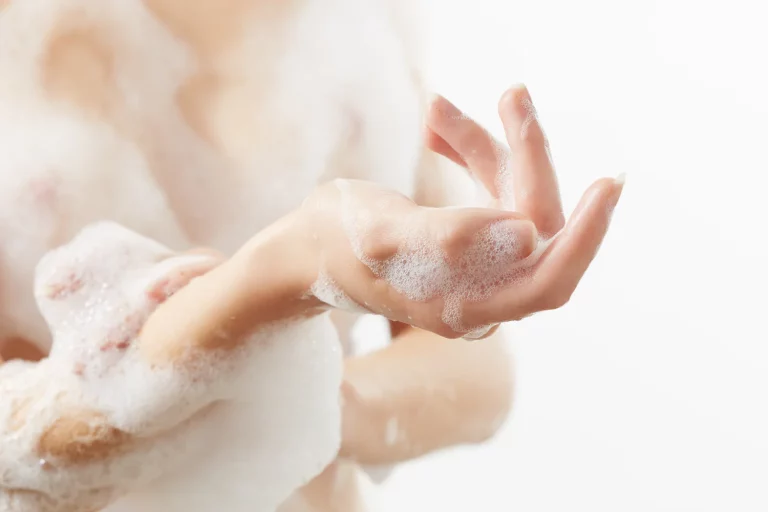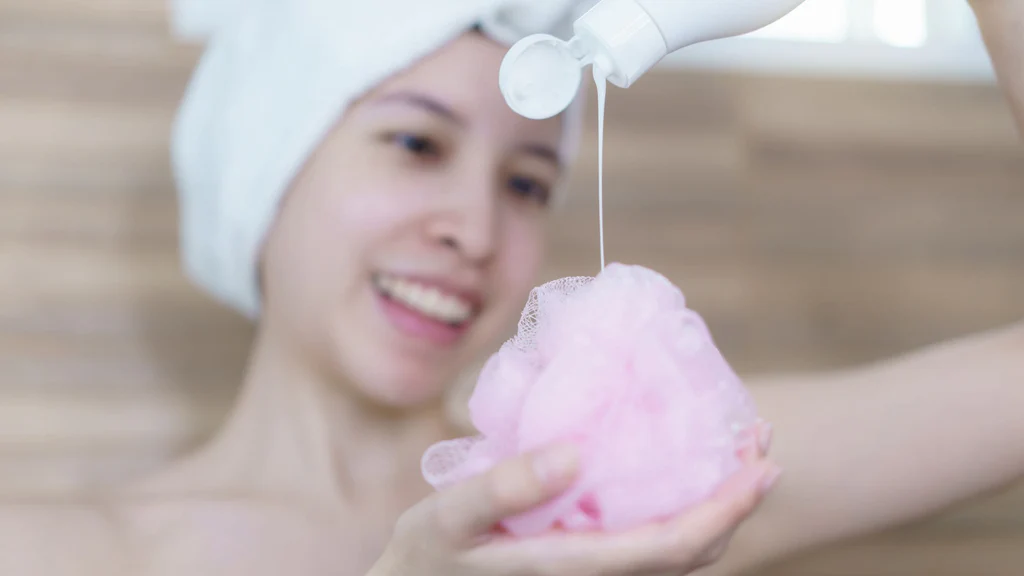- General
- Updated on July 8, 2025
Shower Gel vs. Soap: Which One Is Better for Your Skin?

Introduction
When it comes to cleansing your skin, the choice between shower gel and bar soap may seem simple—but the effects on your skin can be quite different. While both products serve the same basic purpose—to wash away dirt, oil, and sweat—the way they interact with your skin’s natural barrier, moisture levels, and pH balance can determine whether you step out of the shower feeling refreshed or dried out.
So, is one better than the other? Let’s take a closer look at the differences between shower gel and soap—and how to choose the best option for your skin type and lifestyle.
Understanding the Basics

What Is Bar Soap?
Bar soap is a traditional solid cleanser made by combining fats or oils with an alkali (usually lye) in a process called saponification. It effectively breaks down oils and grime on the skin, leaving you feeling clean. Bar soaps can be made with natural or synthetic ingredients, and many now include moisturizing additives like glycerin, shea butter, or plant-based oils.
What Is Shower Gel?
Shower gel is a liquid body cleanser that typically contains water, surfactants (cleansing agents), fragrance, and moisturizing ingredients. It tends to be less alkaline than soap and is often formulated with a pH closer to that of the skin. Shower gels may also include exfoliating beads, essential oils, or skin-nourishing botanicals, depending on the brand and purpose.
Key Differences Between Shower Gel and Soap
While both shower gel and soap are designed to cleanse the skin, they differ significantly in texture, formulation, and how they interact with your skin. Shower gels are typically liquid-based and enriched with moisturizing ingredients, making them gentler on sensitive or dry skin. In contrast, traditional bar soaps are solid and may provide a deeper cleanse but can sometimes strip the skin of natural oils. Understanding these key differences can help you choose the best option for your skin type and daily routine.
1. pH Balance
- Bar soaps—especially traditional or inexpensive ones—often have a high pH (around 9-10), which can disrupt the skin’s natural acidic barrier. This may lead to dryness, irritation, or increased sensitivity over time.
- Shower gels are usually pH-balanced (around 5.5–6), making them gentler and better suited for those with sensitive or dry skin.
2. Moisturizing Properties
- Shower gels often contain added emollients, humectants, and hydrating agents like glycerin or aloe vera that help lock in moisture.
- While some bar soaps now include moisturizing oils, many still have a drying effect, especially if they’re heavily fragranced or lack skin-softening ingredients.
3. Cleansing Strength
- Bar soap generally provides a stronger cleanse, making it effective for removing heavy dirt, sweat, and excess oil—ideal for those with oily skin or after intense workouts.
- Shower gel, while still cleansing, tends to be milder and is better for everyday use on normal to dry or sensitive skin.
4. Hygiene and Bacteria
- Some worry that bar soap can harbor bacteria when left sitting in water. However, studies show this risk is minimal if soap is stored properly and not shared.
- Shower gel, stored in a bottle and dispensed in small amounts, is generally more hygienic, especially in shared or public spaces.
5. Environmental Impact
- Bar soaps often come in minimal packaging, such as paper boxes, and don’t require plastic, making them a more eco-friendly choice.
- Shower gels typically come in plastic bottles, which contribute to waste—though many brands now offer recyclable or refillable packaging.
Which One Is Better for Your Skin?
It depends on your skin type, lifestyle, and personal preferences. Here’s a breakdown:
1. Best for Dry or Sensitive Skin:
- Shower gel is the better option.
- Look for formulas with hydrating ingredients, no sulfates, and minimal fragrance.
- Gel cleansers are less likely to strip natural oils and are more pH-friendly.
2. Best for Oily or Acne-Prone Skin:
- Bar soap can be effective—especially those made with tea tree oil, charcoal, or salicylic acid.
- Choose a formula designed for acne-prone skin and avoid heavily perfumed or deodorant soaps that can cause irritation.
3. Best for the Eco-Conscious:
- Bar soap wins due to its minimal packaging and low water content.
- Opt for organic or natural bar soaps made with biodegradable ingredients.
4. Best for Travel or Shared Spaces:
- Shower gel offers convenience and hygiene.
- It won’t create messes or melt in your toiletry bag, and pump bottles minimize contact with bacteria.
Can You Use Both?
Absolutely. Many people alternate between shower gel and soap depending on their needs:
- Use bar soap after workouts to remove sweat and grime.
- Use shower gel in the winter or if your skin feels dry or irritated.
- Use both in a layered routine, such as exfoliating with a soap bar, then following with a moisturizing gel.
Also Read: Monsoon Mildew Prevention: Keep Your Indian Home Dry & Fresh
Final Thoughts
When it comes to shower gel vs. soap, there’s no one-size-fits-all answer. Both have their benefits and drawbacks, and the “better” option really depends on your skin’s needs, preferences, and environmental values.
If you have dry, sensitive, or mature skin, a pH-balanced shower gel with moisturizing ingredients may be the way to go. If you have oily or acne-prone skin, or you’re looking for a simple, sustainable solution, a
Join the discussion
Related Articles
No results available
ResetTrending Articles


- General
- Updated on December 5, 2025


- General
- Updated on December 2, 2025


- General
- Updated on December 5, 2025


- General
- Updated on November 27, 2025


- Health
- Updated on November 24, 2025


- General
- Updated on November 24, 2025


- General
- Updated on November 19, 2025


- General
- Updated on November 19, 2025


- General
- Updated on November 14, 2025


- Tech
- Updated on November 12, 2025
No results available
Reset


